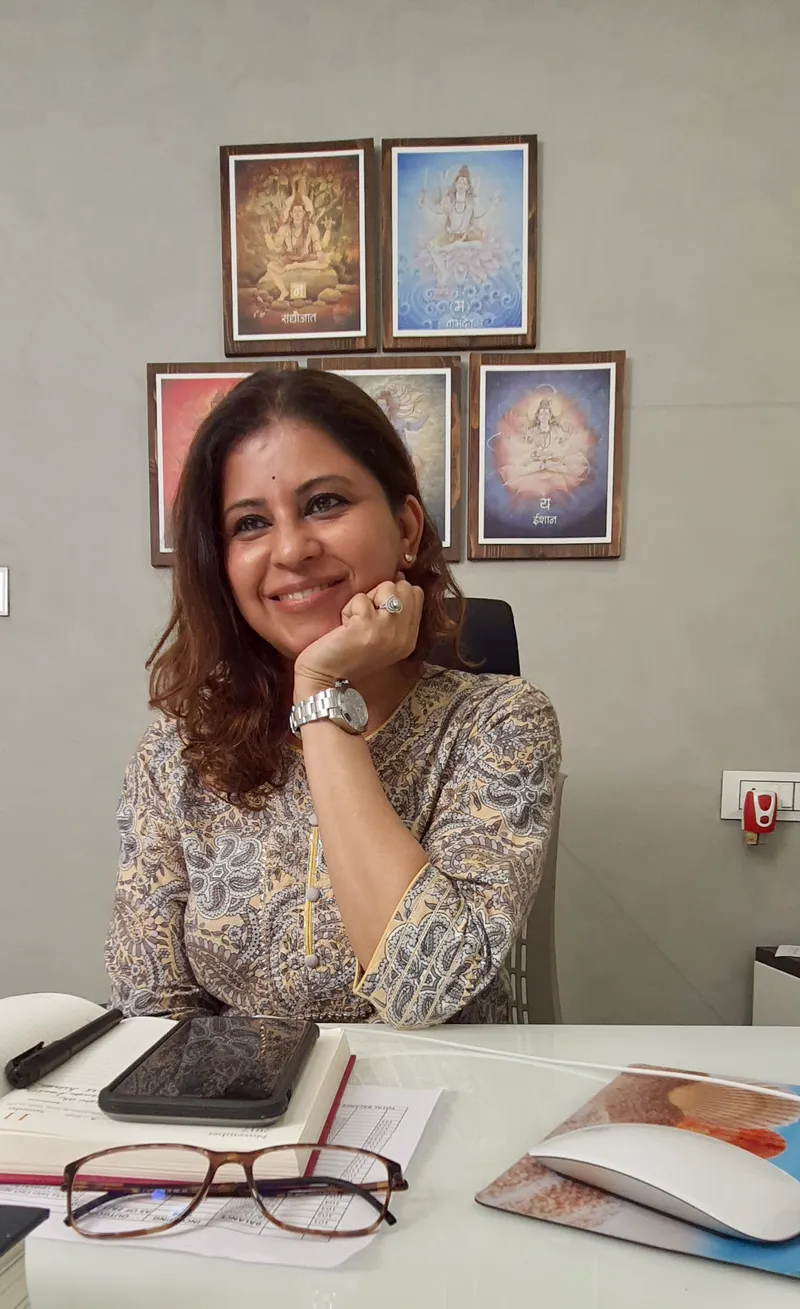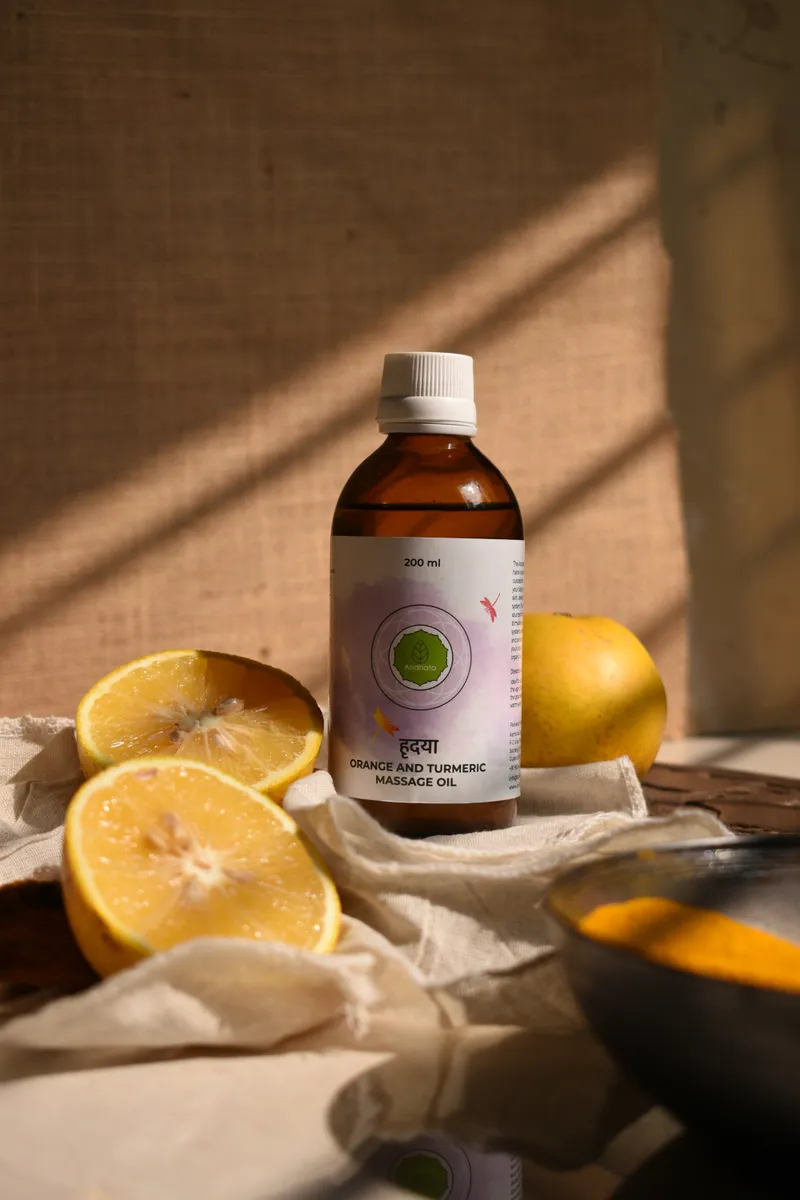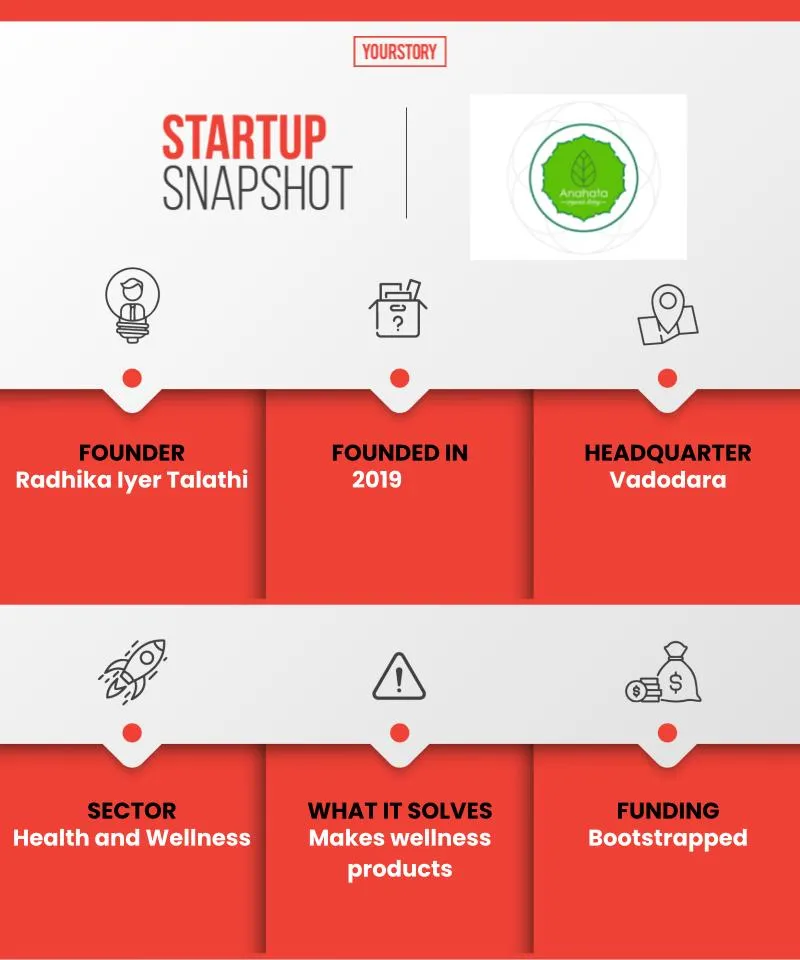[Startup Bharat] How a cancer survivor decided to start this Vadodara-based wellness brand
Founded in 2019, Vadodara-based wellness startup Anahata manufactures and sells skincare and food products. Its workforce comprises 70 percent of women.
About 12 years ago, Radhika Iyer Talati was introduced to Ayurveda, meditation, and naturopathy when she travelled to the Himalayas. At the time, Radhika — who was diagnosed with first-stage breast cancer and later uterine cancer — was seeking a complete lifestyle change to help her fight the disease, even as she was receiving allopathy treatment.
Cut to 11 years later in 2019, Radhika — who has seen first hand the value of sustainable living and the benefits of focusing on making positive lifestyle changes — is the founder of organic food-based startup Anahata. A health and wellness brand, Radhika started Anahata to address the growing demand for organic products as people turn more conscious about health, wellness, and sustainable living.
Explaining the brand name, Radhika says, “The Vedas and the Puranas mention Anahata or the ‘Heart Chakra,’ which is present in all of us, and epitomises balance, serenity, and compassion — a mantra we follow to make a conscious effort to inculcate in our brand as a whole.”

Radhika Iyer Talati, Founder of Anahata
The 11-year journey to starting up
Anahata makes handcrafted, chemical-free products. In fact, some of the ideas for her recipes come from her 11 years of travels in the Himalayas, where she met sages, travellers, yogis, international students, locals, and various people, who shared these recipes with her.
“I have learnt all these things from them, and my source of knowledge on this field is wide, derived from people who come from various ages, backgrounds, and cultures,” Radhika tells YourStory.
She has been making these recipes on a small scale for her family and friends, and for 11 years, she has first-hand witnessed her health and physique improve.
“The COVID-19 pandemic strengthened my resolve in starting Anahata. I saw the dearth of real, genuine organic products in the market that is true to our culture, environment, and body type (genetics). A lot of these things are not reflected in most Indian brands. That pushed me to start on a large scale and establish Anahata as a corporate brand,” Radhika says.
Manufacturing the products
The startup’s manufacturing process supports small farmers, women entrepreneurs, and local businesses. While the product formulations are curated in the Himalayas, its DIY recipes are handed down from one generation to another in handwritten books and manuscripts.
Although Anahata began manufacturing the products in September 2020, it is still exploring new ways to grow.
“There is still a bit of confusion to identify our target customers. Since many people are stuck to choosing the easy and convenient chemical options, many a time, we are at crossroads about what the consumers actually want and how conscious they are about shifting to an organic lifestyle. Our biggest challenge, I feel, is to be able to create awareness among people about adopting a chemical-free life,” says Radhika.
Moreover, the difficulties in integrating internal processes, gathering a dedicated team, sorting out day-to-day management, getting orders, and creating a customer base were pretty challenging.
“We pride ourselves to be an organic and ethical brand, and we hope to be able to resonate with this mission for as long as we can stick around. We hire people intending to keep them with us for the long haul. We believe it’s the team that makes all the difference, and we pride ourselves that we place people over profits. However, this has also been a challenge, and it is difficult to find people dedicated not just to the brand but also to the overall cause,” Radhika says.
The startup has built its online presence organically — without paid promotions and advertisements — to find initial customers who become its core members.

Anahata Product
Setting up
The startup sticks to three core principles — building a community, keeping the manufacturing process sustainable, and investing in the right people.
“We have consciously decided to adopt a plastic-free packaging, using glass, tin, and recycled material, even though it is slightly costlier. As a company, we also decided to hire people and not mechanise our processes too much,” says Radhika.
To build awareness about living organically, Anahata has collaborated with many brands, creators, bloggers, and artists who support this cause.
At present, the startup has a team of 24 people. The production team is made up of about 70 percent of local women who come from low-income families from the nearby villages of Vadodara and across Gujarat.
“We, as a brand, believe in empowering more women but also believe in building communities that help other women and children to enhance their lifestyle. Our team has people from different age groups — 19-34 years. Our vendors are generally small-scale organic farmers from across the country, local artists who hand paint our boxes and hampers, and other startups looking to collaborate and build a community,” says Radhika.
Radhika pumped in Rs 8 crore from her savings into the bootstrapped brand. She says social media plays a great role in providing the much-needed reach to ecommerce companies like Flipkart and Amazon.
“Onboarding on platforms like Brown Living, Vanity Wagon, and Wedding Brigade for our beauty and skincare products, and Farsan Kart for our food is slowly picking up. These platforms have a very niche audience, and we are hoping they will help us grow in a very short time,” says Radhika.
Anahata’s products such as Navel serum, Kumkumadi Thailam, Aloe-vera gel, rose cream, rose water, and acne fighter sells without virtually any marketing. Some of its food products include salts, oils, flours, etc.
These are priced between Rs 250 and Rs 500. Its corporate clientele includes Perineals, Inox, Tanishq, etc.
At present, the startup claims to have close to 15 to 20 percent growth. In fact, it achieved sales of Rs 3 lakh within three months of its launch. Anahata competes with Coimbatore-based Vilvah, Mumbai-based vegan brand Plum, and online vegan cosmetic brand Disguise.

Market and future
According to RedSeer, the Indian beauty market is estimated at around $7 billion and is seeing healthy double-digit growth.
“There are numerous challenges for a new brand to gain the market — other established brands, price competition (as the production cost initially is much higher due to low volume), R&D spends, trials and testing, etc. At the same time, huge branding/promotions spend may make it tough to survive the initial phase. Therefore, keeping all aspects in balance and moving is a challenge, and we could address almost every aspect well,” explains Radhika.
“Our immediate future plan is to have at least five physical stores across India. We are hoping to expand our organic food products line to set up stores on an immediate basis. We are also hoping to be accessible in Tier III, IV, and smaller towns in the next few years,” says Radhika.
Initially, Anahata is looking at entering the export market soon through ecommerce platforms, and later, through channel stores.
Herbal and organic beauty, especially skincare products from India, are in huge demand abroad. Some of the major importers of herbal cosmetics and skincare products from India are the UAE, US, UK, Netherlands, Germany, Japan, Russia, France, and Italy.
Edited by Suman Singh


![[Startup Bharat] How a cancer survivor decided to start this Vadodara-based wellness brand](https://images.yourstory.com/cs/2/a9efa9c02dd911e9adc52d913c55075e/SB-1617098550123.png?mode=crop&crop=faces&ar=2%3A1&format=auto&w=1920&q=75)
![[Funding alert] OZiva raises $12M Series B investment by Eight Road Ventures, F-Prime Capital, and Matrix Partners](https://images.yourstory.com/cs/2/a9efa9c02dd911e9adc52d913c55075e/Image0p7d-1615874075419.jpg?fm=png&auto=format&h=100&w=100&crop=entropy&fit=crop)





